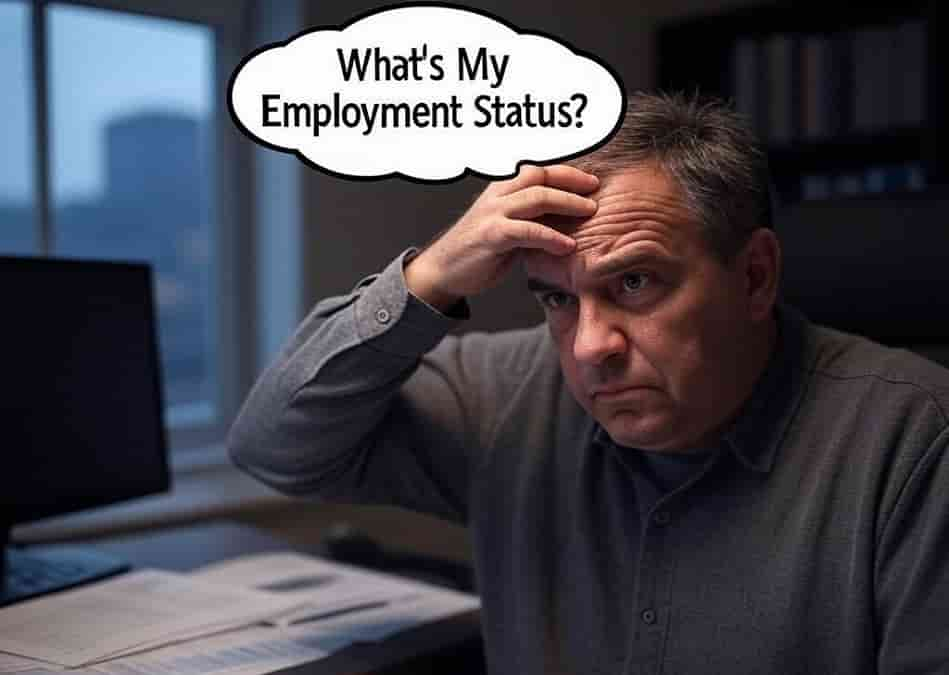Understanding employment status for a UK worker
Determining your employment status is one of the most important aspects of employment in the United Kingdom. Whether you’re hiring staff or seeking clarity as a UK worker, understanding the distinctions between different types of working relationships is essential. Employment status affects tax responsibilities, eligibility for benefits, and legal rights.
This guide from The Workers Union explores the various types of employment status and what each means for employers and workers alike.
What is employment status?
Employment status refers to the legal classification of a person’s work arrangement. It affects both how tax is paid and what employment rights the individual can claim. Workers can fall into one of three broad categories: employee, worker, or self-employed. These categories are not just labels—they determine the level of legal protection and responsibilities that apply.

Employee Status
An employee is someone who works under an employment contract. While they may be regarded differently for tax purposes, being classified as an employee generally provides the highest level of employment protection.
Key employment rights for employees include:
- Statutory Sick Pay (SSP)
- Statutory Maternity, Paternity, Adoption, Shared Parental, and Bereavement Pay and Leave
- Minimum notice periods
- Protection against unfair dismissal
- The right to request flexible working
- Time off for emergencies
Employers must also ensure employees are reported to HM Revenue and Customs (HMRC) when they start or leave employment.
Identifying an employee A worker is likely to be classified as an employee if they:
- Are required to work regularly, unless on leave
- Must work a minimum number of hours and expect pay
- Are under managerial supervision
- Cannot send someone else to do their work
- Receive holiday and sick pay
- Are enrolled in the company’s pension scheme
- Are subject to disciplinary procedures
- Work on company premises
- Use company-provided tools or equipment
- Have terms referring to them as ‘employee’ in their contract
Worker Status
A worker is someone who has a contract (written or oral) to personally perform work or services. While not entitled to the full range of employment protections, workers still receive essential rights.
Key rights for workers include:
- National Minimum Wage
- Paid holiday
- Rest breaks and limits on working hours
- Protection from discrimination and unlawful deductions
- Whistleblower protection
- Some statutory family-related pay entitlements
Workers usually do not qualify for protection against unfair dismissal or statutory redundancy pay.
Casual and irregular work
People who work on an ad hoc or casual basis typically fall under the category of ‘worker’. They might:
- Take on occasional assignments
- Be under no obligation to accept work
- Have contracts using terms like ‘zero hours’ or ‘freelance’
- Work under supervision without subcontracting
- Receive tools or materials from the business
- Have tax and National Insurance deducted at source
Self-employed and contractor status
A self-employed person runs their own business and takes responsibility for its success or failure. They are not paid through PAYE and are not covered by most employment law protections that apply to employees and workers.
However, self-employed individuals may still have rights, such as:
- Health and safety protections
- Protection against discrimination (in some contexts)
- Rights under contractual agreements with clients
A person can be both employed and self-employed simultaneously. For instance, they might work for an employer by day and run their own business during evenings or weekends.
Checking employment status
Employers must check a person’s status for both tax and employment law purposes. This ensures appropriate tax handling and confirms what rights apply. Misclassifying someone could lead to significant legal and financial penalties.
HMRC provides tools to help employers determine whether a person is employed or self-employed for tax purposes. However, the legal employment status might differ, and it is critical to assess each case individually, especially where casual or irregular work arrangements exist.
Conclusion
Understanding employment status is fundamental for anyone participating in the UK labour market. It affects everything from pay and benefits to job security and legal protections. Whether you’re a business owner, HR professional, or worker, having clarity about status will help ensure that legal obligations are met and rights are upheld.



